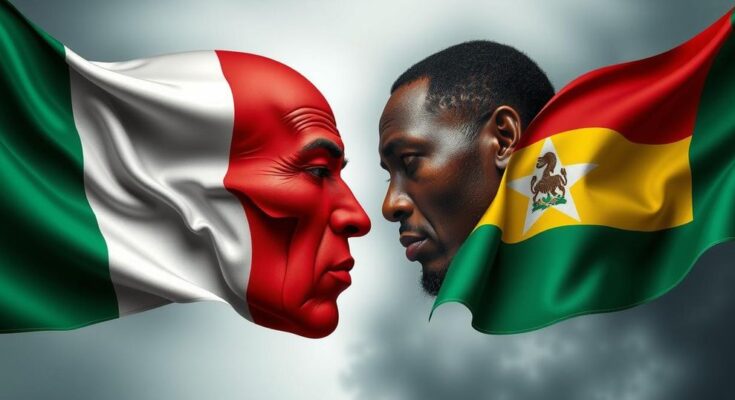The electoral processes in Nigeria and Ghana present significant disparities, with Ghana showcasing a robust and competitive democratic environment, evident in the December 2024 elections where John Mahama won with a notable voter turnout of 60.9%. In contrast, Nigeria’s elections remain plagued by controversies and low participation, reflecting a crisis of confidence in its electoral system. Ghana’s success and Nigerian failures highlight the need for reform and the importance of upholding democratic principles.
The political and electoral landscapes in Nigeria and Ghana, despite both countries gaining independence within a few years of each other, present stark contrasts. Ghana has cultivated a healthy and competitive electoral environment, highlighted by the recent presidential election held on December 7, where former President John Mahama won with 56.55% of the votes. His opponent, Mahamudu Bawumia, received 41.61%. The elections were characterized by a remarkable voter turnout of 60.9%, reflecting robust civic engagement and confidence in the electoral process.
In a display of commendable statesmanship, Vice-President Bawumia conceded the election while votes were still being counted, which helped to mitigate any potential tensions arising from the election results. The conduct of the election included freedom of movement for citizens and the absence of fear from security forces, underscoring a stark contrast to the militarized and often turbulent atmospheres that accompany elections in Nigeria.
Nigerian officials, including the Chairman of the Independent National Electoral Commission (INEC), Mahmood Yakubu, have noted that Ghana has emulated certain electoral practices from Nigeria. However, the contrasting outcomes suggest that while Nigeria’s electoral traditions have led to numerous controversies, Ghana has successfully implemented these systems to enhance democratic practices.
The African Union Election Observation Mission lauded Ghana for its commitment to democratic principles in the 2024 presidential elections, citing adherence to both regional and international standards. Conversely, the EU Election Observation Mission criticized the 2023 Nigerian general elections, stating that they did not engender a transparent or inclusive democratic process.
Historically, Nigeria’s electoral credibility has been undermined by systemic flaws, highlighted by former President Musa Yar’Adua’s acknowledgment of the defects in his electoral victory. In stark contrast to Ghana, which has seen voters hold ruling parties accountable for incompetence since its return to multiparty democracy in 1992, Nigeria continues to endure cycles of electoral manipulation. This environment has fostered a prevailing culture of electoral misconduct, where vote-buying and collusion challenge the integrity of the electoral process.
The devastating impact of these failings is reflected in Nigeria’s dismal voter turnout; only 26.7% of registered voters participated in the 2023 presidential election compared to Ghana’s notable turnout. The key factors contributing to Ghana’s electoral success include respect for legal frameworks, institutional resilience, and an engaged civil society, which Nigeria would do well to emulate.
The political histories of Nigeria and Ghana reveal significant differences in their electoral systems and citizen engagement. Ghana’s return to democratic governance in the early 1990s has led to consistent electoral improvements, while Nigeria has struggled with electoral integrity, often resulting in public disillusionment. The contrasting experiences of the two nations, particularly regarding voter turnout and electoral trust, highlight the need for reforms in Nigeria’s approach to elections and political accountability.
In conclusion, the stark differences between the electoral processes in Nigeria and Ghana illustrate the importance of democratic integrity and accountability. Ghana’s successful elections serve as a valuable lesson for Nigeria, emphasizing the need for systemic reforms to enhance voter engagement, transparency, and adherence to democratic principles. As both nations strive for improvements in governance, Ghana’s example provides a hopeful template for fostering a more credible electoral culture in Nigeria.
Original Source: punchng.com




